Top stories
NYC Mayor Eric Adams Indicted on Federal Charges Amid Escalating Scandals
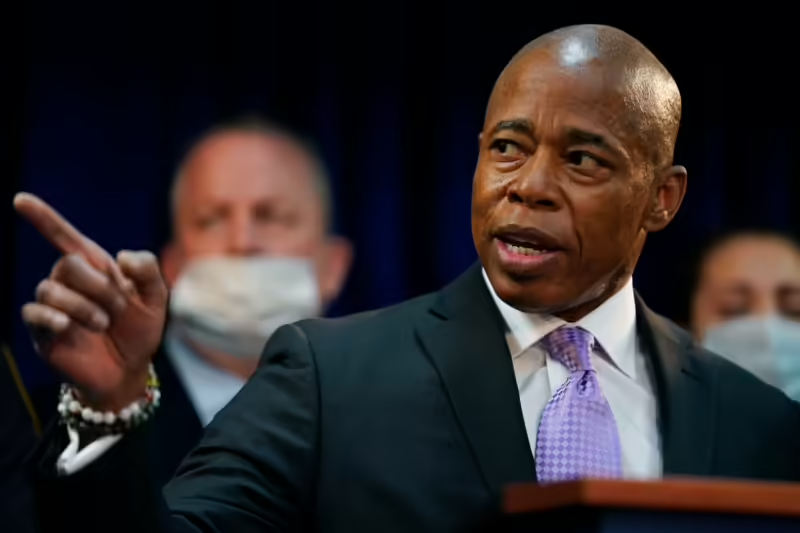
New York City Mayor Eric Adams has been indicted by a federal grand jury on criminal charges, marking a historic and stunning fall for the once-prominent leader. The indictment, which remains sealed, was confirmed late Wednesday by two individuals familiar with the situation. While the exact nature of the charges has yet to be revealed, this unprecedented event casts a deep shadow over the embattled mayor’s administration.
Adams, a Democrat and former NYPD captain who took office nearly three years ago, responded swiftly with defiance, hinting at a conspiracy against him. “I always knew that if I stood my ground for New Yorkers that I would be a target—and a target I became,” Adams said in a fiery statement. “If I am charged, I am innocent and will fight this with every ounce of my strength.”
The indictment is the culmination of mounting legal troubles that have enveloped City Hall for more than a year. Federal investigations into key figures in Adams’ inner circle have cast a pall over his administration, leading to high-profile resignations and relentless scrutiny. In just under three years, Adams’ administration has transformed from one of hopeful promise to a scandal-ridden entity, entangled in federal probes, raids, and accusations of corruption.
As of now, it remains unclear when the charges against Adams will be made public or when he might appear in court. The U.S. attorney’s office in Manhattan declined to comment on the case, and New York City finds itself in political limbo, awaiting more details.
Adams’ indictment is a rare and shocking moment in New York City’s political history. Never before has a sitting mayor of the nation’s largest city faced criminal charges while in office. Should Adams choose to resign, the city’s public advocate, Jumaane Williams, would take over as interim mayor, potentially triggering a special election. Governor Kathy Hochul also holds the power to remove Adams from office, though her office has yet to respond to the rapidly unfolding situation.
The indictment has already sent shockwaves through the political landscape. Hours before the news broke, U.S. Rep. Alexandria Ocasio-Cortez became the first prominent Democrat to call for Adams’ resignation. In a pointed statement, she cited the mayor’s entanglement in multiple federal investigations and the abrupt departures of several top city officials as reasons why Adams could no longer govern effectively.
“I do not see how Mayor Adams can continue governing New York City,” Ocasio-Cortez declared on social media.
Adams shot back with disdain, dismissing the congresswoman’s comments as “self-righteous” and out of touch.
Adams, a former police captain, won the 2021 mayoral election on a law-and-order platform, promising to bring down crime and restore order to a city emerging from the pandemic. But over time, his administration has been marred by scandal after scandal, starting with FBI raids on his chief fundraiser’s home last year. The federal probe into campaign fundraising practices quickly snowballed, dragging in top city officials, advisors, and even Adams’ closest allies.
Investigators have scrutinized everything from Adams’ overseas travel to his relationships with foreign governments, including Turkey. Meanwhile, multiple aides and officials within his administration have faced raids, subpoenas, and indictments.
Adams has consistently denied any involvement in illegal activities, asserting as recently as this week that he was not aware of any wrongdoing. However, the mayor’s defiant stance has done little to quell the growing storm surrounding him.
Federal scrutiny of the Adams administration hit a fever pitch in early November, when FBI agents seized the mayor’s phones and iPad as he was leaving an event in Manhattan. Days earlier, authorities had raided the home of his chief fundraiser, Brianna Suggs, triggering a wave of speculation about potential corruption within the mayor’s campaign and administration.
As federal authorities expanded their investigation, more and more of Adams’ inner circle found themselves under the microscope. In September, federal agents seized electronic devices from Police Commissioner Edward Caban, Schools Chancellor David Banks, and other top aides.
These revelations were followed by a series of high-profile resignations. Caban stepped down from his post, citing the growing investigations as a “distraction.” David Banks soon announced his plans to retire by the end of the year.
The indictment has plunged City Hall into chaos, leaving New Yorkers to wonder what comes next. As the mayor faces potential criminal charges, questions are swirling about whether Adams can continue to govern a city still grappling with rising crime rates, a migrant crisis, and economic recovery efforts.
The political fallout will undoubtedly be fierce, with Adams’ future hanging in the balance and the prospect of a leadership vacuum looming over New York City. What does this mean for the city’s future? Will Adams fight to clear his name, or will he step aside as the legal drama unfolds?
The story is just beginning to unfold, and the stakes couldn’t be higher for Mayor Eric Adams—and for the millions of New Yorkers he was elected to serve.
Stay tuned for more explosive developments in this unfolding political saga.
Top stories
Eid Feast Turns to Tragedy: 21 Family Members Poisoned After Eating Sick Camel in Somaliland

Somaliland health officials blame traditional slaughter and improper drug use after camel meat poisons entire family in Saaxil region
A sick camel slaughtered for Eid in Somaliland left 21 family members poisoned. Health officials warn against consuming medicated animals without proper veterinary clearance.
A Tradition Gone Toxic: How an Eid Camel Slaughter Poisoned a Whole Family in Somaliland
21 members of a single family found themselves battling for their lives after consuming meat from a sick camel—a haunting reminder of how ancient customs and modern medicines can collide with deadly consequences.
The incident unfolded in Himin village, where a family slaughtered a camel that had recently fallen ill. The animal had been treated with medication, but when no improvement was seen, it was killed for the Eid feast—a common pastoral tradition in Somali communities where wasting meat is taboo.
But this time, that tradition proved toxic.
Dr. Ismail Hussein Abdullahi, Director of the Ministry of Health in Sheikh District, confirmed that the illness stemmed from improper administration of veterinary drugs. “The medication may have been injected into the wrong vein, causing toxic accumulation, particularly in the liver—often the first part of the animal consumed during such celebrations,” he told the BBC.
The liver, considered a delicacy, turned out to be the most lethal part. Those who consumed it fell critically ill. Vomiting, diarrhea, and dehydration set in rapidly, with eight people still hospitalized in Burco, including the parents and sister of Nur Farah Bulaale, one of the victims.
While most of the family is recovering, the case has sparked fresh concern in a region where such incidents have occurred before. In 2008, more than 60 people were poisoned in a similar episode—proof that these aren’t isolated accidents but a systemic health oversight.
The Ministry of Health has now urged the public to stop slaughtering sick animals and avoid consuming any meat from livestock recently treated with medication without proper veterinary clearance. But changing rural customs takes time—and a deeper push for awareness.
This tragedy is a stark warning for communities across the Horn of Africa: in an era of evolving medicines, relying on tradition without science can have devastating consequences. What should have been a day of unity and celebration nearly turned fatal for an entire family. The lesson? Life-saving caution must now take precedence over long-held custom.
Top stories
Netanyahu’s Safe Haven: ICC Fugitive Finds Refuge in Orbán’s Hungary
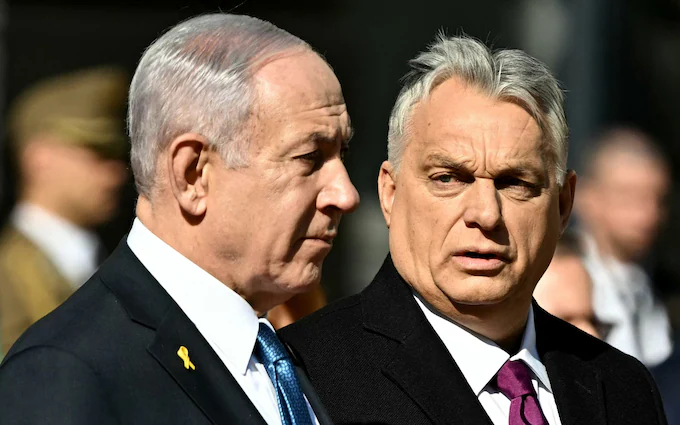
With arrest warrant looming, Netanyahu lands in Budapest—exposing a growing alliance between embattled leaders and illiberal democracies
Israeli PM Benjamin Netanyahu visits Hungary in defiance of ICC arrest warrant, highlighting his deepening ties with Viktor Orbán as both leaders face mounting domestic and international pressure.
An Autocrats’ Embrace: Netanyahu’s Budapest Visit Defies ICC, Emboldens Orbán
Benjamin Netanyahu’s four-day visit to Hungary is more than just a diplomatic pit stop—it’s a calculated snub to international justice and a revealing glimpse into the new safe zones emerging for embattled leaders who operate on the fringe of liberal democracy.
Landing in Budapest, the Israeli Prime Minister sought refuge in one of the few European capitals openly defying the International Criminal Court. Since the ICC issued an arrest warrant in November over alleged war crimes in Gaza, Netanyahu has carefully avoided travel to ICC-signatory countries—until now.
But Hungary under Viktor Orbán is no ordinary ICC member. Orbán was among the first to denounce the ICC’s move against Netanyahu, branding it “cynical and unacceptable.” It’s a diplomatic shield the Israeli leader eagerly accepted—at a time when his international movements are under unprecedented legal constraint.
While the official schedule touts ceremonial visits and photo ops, the real draw is Budapest’s geopolitical utility. It offers Netanyahu something rare: a platform to operate like a normal prime minister while under the shadow of an arrest warrant. More crucially, Hungary provides a discreet backchannel for foreign policy maneuvering, shielded from the watchful eyes of ICC-enforcing states.
But this visit is also deeply symbolic. It highlights the troubling axis forming between right-wing illiberal regimes: leaders who dismantle judicial independence, curtail press freedoms, and now, openly thumb their noses at international law. Netanyahu and Orbán are not just political allies—they are co-architects of a world order where accountability is optional, and democratic backsliding is masked as nationalism.
Their shared struggle for political survival—Netanyahu amid mass protests and deep war fatigue, Orbán under rising domestic opposition—makes this meeting more than ceremonial. It’s a transactional alliance of convenience, reinforcing the narrative that the rules-based international system is breaking down.
This visit might win Netanyahu a temporary reprieve from isolation, but it also exposes the shrinking map of democratic allies willing to host him. And as Orbán continues to cozy up to global outliers like Putin and Xi, Hungary’s embrace of Netanyahu becomes not just a diplomatic gesture, but a strategic alignment—one that should unsettle defenders of both international justice and liberal democracy.
Top stories
Macron Fires Back: France Urges Halt to U.S. Investments Over Trump’s Tariffs

Macron slams Trump’s tariff blitz as “brutal and unfounded,” calls for EU-wide retaliation and suspension of major French investments in the U.S.
French President Emmanuel Macron has called on European firms to freeze U.S. investments in response to Trump’s sweeping tariffs, escalating transatlantic economic tensions and threatening multibillion-dollar deals.
Tariff War Escalates: Macron Urges Freeze on U.S. Investments, Threatens EU Retaliation
In a sharp escalation of the transatlantic economic standoff, French President Emmanuel Macron has called on European companies to immediately suspend planned investments in the United States, following President Donald Trump’s aggressive rollout of reciprocal tariffs on global trade.
“Investments to come or investments announced in recent weeks should be suspended until things are clarified with the United States,” Macron declared on Thursday, sending shockwaves through both European boardrooms and Washington’s economic circles.
The move directly targets high-profile French commitments such as CMA CGM’s $20 billion U.S. port infrastructure plan and Schneider Electric’s $700 million expansion to support America’s AI-powered energy needs. Trump himself had championed these deals just days earlier as evidence of a booming U.S. industrial revival — a narrative Macron now seeks to unravel.
The French president didn’t stop at corporate caution. He signaled the EU might deploy its anti-coercion mechanism, a potent tool designed to counter trade bullying, while hinting at countermeasures in digital services and U.S. financial interests. “The response this time,” Macron warned, “will be more powerful than what we did after the steel and aluminum tariffs.”
Calling Trump’s tariffs “brutal and unfounded,” Macron framed the White House’s move as a direct assault on the rules-based international order. “This is a shock to global trade,” he said, pledging that Europe would respond industry by industry, deal by deal.
The clash marks a critical juncture in U.S.-EU economic relations, with billions of euros in corporate commitments hanging in the balance. And it’s not just France watching nervously — European leaders now face a defining choice: comply, retreat, or retaliate.
If Macron’s call catches momentum, it could spark the most serious economic rupture between Washington and Europe in over a decade — and send a chilling message to foreign investors weighing Trump’s “America First” doctrine against rising geopolitical risk.
Top stories
Senate Rebels Against Trump Tariffs, GOP Split as Canada Trade War Looms
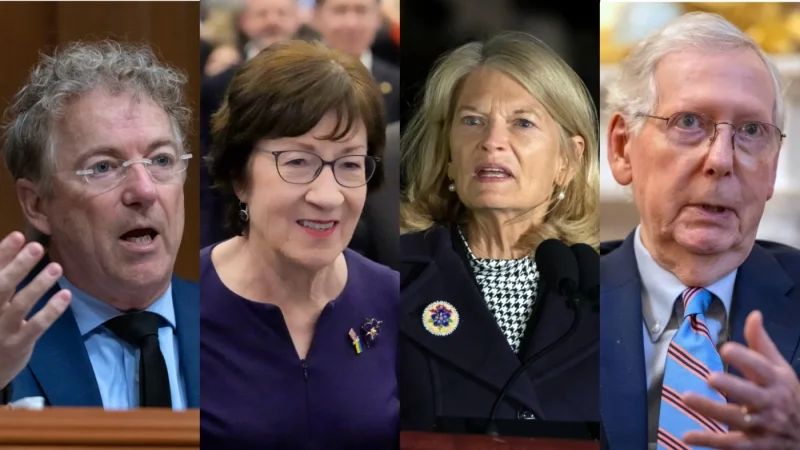
Senate vote challenges Trump’s Canada tariffs, signaling GOP unease with “Liberation Day” trade crackdown. Is economic pain worth the political gain?
The U.S. Senate has narrowly voted to block Trump’s Canada tariffs, exposing cracks in GOP unity over his aggressive trade agenda and raising fears of economic fallout ahead of 2024.
Republican Cracks Widen as Senate Moves to Block Trump’s Canada Tariffs
In a late-night vote that amounts to a rare rebuke of President Donald Trump’s trade agenda, the U.S. Senate passed a resolution on Wednesday aimed at blocking his planned tariffs on Canadian imports. Though unlikely to survive the Republican-controlled House or Trump’s veto pen, the 51-48 vote exposes a growing rift inside the GOP — one that pits traditional conservatives against Trump’s economic nationalism.
Trump’s “Liberation Day” — a sweeping tariff offensive targeting dozens of U.S. trading partners — spared Canada for now, but the president continues to justify penalties on America’s closest ally by invoking the northern flow of fentanyl. Critics, however, say the argument is a smokescreen for an economic gamble that could backfire.
“This is not about fentanyl. It’s about tariffs — a national sales tax on American families,” said Democratic Senator Tim Kaine, who led the push against the Canada measures. He and others warn the fallout will be felt in industries from shipbuilding to grocery stores, with rising costs on aluminum, lumber, and food products that depend on cross-border trade.
Republicans Lisa Murkowski, Susan Collins, Mitch McConnell, and Rand Paul broke ranks, opposing what Paul called “taxes on the American people.” The Kentucky senator didn’t mince words: “Conservatives used to understand that tariffs are taxes.”
Collins raised alarm over a paper mill in Maine that relies on Canadian pulp, while Murkowski defended Alaska’s seafood industry from potential collateral damage. Even North Dakota’s Kevin Cramer, no stranger to Trumpian loyalty, admitted the tariffs were “a source of political anxiety.”
But Trump fired back on Truth Social, slamming dissenting Republicans for aiding Democrats and failing to support his push to penalize Canada for “unfair” trade and fentanyl trafficking — despite evidence that the overwhelming majority of fentanyl comes from the southern border, not the north.
With Trump eyeing tariffs as both economic lever and electoral rallying cry, the Senate’s revolt underscores the risk: If the economy slips before November, the backlash won’t just come from Democrats. It’s already brewing within Trump’s own party.
Commentary
China’s Space Grab in Africa: How Beijing Is Winning the Final Frontier as Trump Slashes U.S. Aid
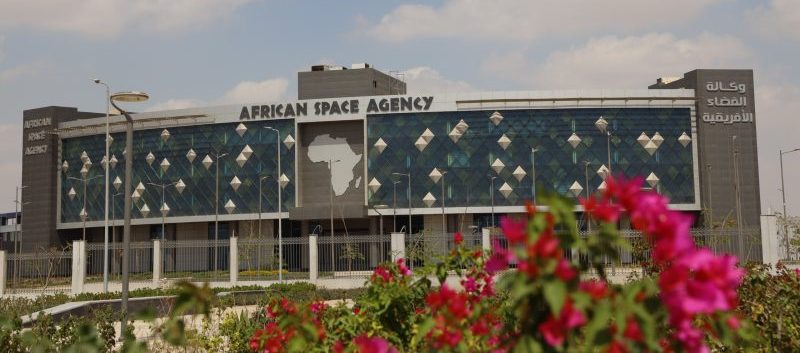
While Trump retreats, China plants its flag in Africa’s skies—building satellites, telescopes, and alliances to dominate space and surveillance.
As Trump guts foreign aid, China ramps up space partnerships across Africa, embedding surveillance tech and satellites that could shift the balance in the global space race—and military power.
Space for Sale: How China Is Colonizing Africa’s Skies as America Pulls Back
While the United States under President Trump slashes development aid and scales down soft power, China is quietly launching a space takeover in Africa—one satellite, telescope, and military-grade surveillance system at a time.
From a space lab outside Cairo to high-powered telescopes tracking orbital objects from Egyptian hilltops, China is embedding itself deep into Africa’s burgeoning space infrastructure. Beneath the banner of cooperation and development, Beijing is not just gifting technology—it’s harvesting data, expanding its global surveillance network, and establishing a strategic military and political footprint across the continent.
This is no secret to Washington. Intelligence veterans like Nicholas Eftimiades warn that China is “democratizing space to enhance its authoritarian capabilities”—a global dragnet cloaked in diplomacy. And it’s working. More than 23 African nations now partner with China on space ventures, from satellite launches and ground stations to a proposed joint moon base that openly rivals NASA’s Artemis program.
The Space City outside Cairo, where Chinese engineers outnumber locals, is emblematic. The “African-built” satellites launched there? Mostly assembled in China. Data ownership? Officially Egyptian—but insiders say Beijing still taps into the stream. It’s not just soft power—it’s hardware dominance with military consequences, including anti-satellite warfare readiness and real-time surveillance of joint U.S.-Egyptian exercises.
As China builds eyes in the sky, Trump’s America is going dark—cutting U.S. Agency for International Development funds and retreating from space diplomacy. Meanwhile, SpaceX’s Elon Musk races ahead in military-grade satellite networks, but there’s little sign of the U.S. competing with China’s ground-level infiltration across Africa.
The result? A Cold War-style showdown in orbit, with Africa as the battlefield—and Trump’s retreat from development aid and soft power may have handed Beijing the launch codes for a new global order in space.
China isn’t just investing in Africa—it’s outsourcing its space program onto the continent, collecting data, projecting power, and rewriting the rules of 21st-century dominance. The moon may be next, but the race is already raging here on Earth. And right now, Beijing is winning.
Top stories
Trump Tells Senate Deficit Hawks: “I’ve Got Your Back” on Spending Cuts and Tax Overhaul
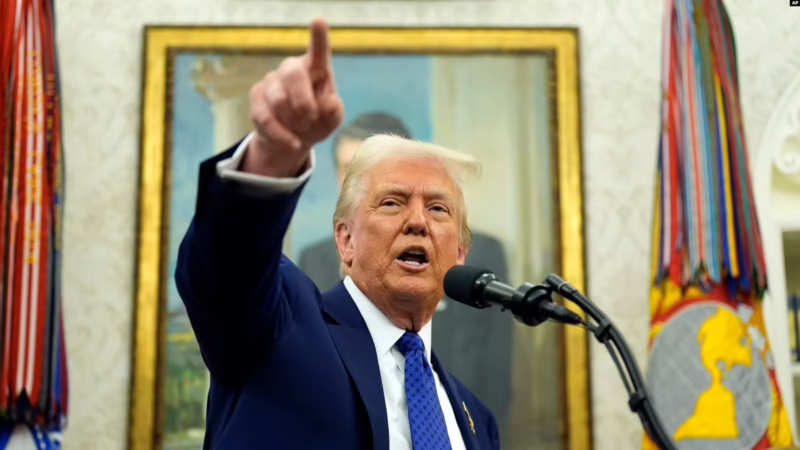
Backing the GOP’s massive budget plan, Trump promises deep spending cuts, permanent tax breaks, and a full fiscal reset—with deficit hawks rallying to his call.
President Trump pledges full support for the Senate’s budget reconciliation plan, vowing to slash spending, cement tax cuts, and unify Republicans around a bold fiscal agenda to reshape the U.S. economy.
Trump Rallies Deficit Hawks Behind “One, Big, Beautiful Bill”
President Donald Trump is making it clear: when it comes to slashing spending and pushing his America First fiscal vision, the Senate’s budget hawks have his full-throated backing.
In a fiery post on Truth Social, Trump endorsed the Senate GOP’s budget reconciliation framework—branding it his “ONE, BIG, BEAUTIFUL BILL”—and called on every Republican in Congress to unify and pass it “IMMEDIATELY.” The plan promises sweeping permanent tax cuts, deep spending reductions, and historic investments in defense, energy, and border security—a direct pitch to the fiscal conservatives who have long demanded deficit discipline.
“This bill is the tool we need to right-size the budget and bring spending back under control,” Trump declared, backing the efforts of Speaker Mike Johnson and Senate Majority Leader John Thune.
Behind closed doors, Trump reportedly reassured Senate hardliners like Sen. John Kennedy (R-La.) that a recissions package—designed to claw back excessive spending—would be on his desk quickly, further strengthening their resolve to support the resolution.
The reconciliation package, still in flux, aims to trim the federal deficit by $1.5 to $2 trillion, though a contingent of fiscal hawks is pushing for cuts as high as $6.5 trillion over the next decade. The GOP is betting that Trump’s influence will unify skeptical lawmakers and give the budget push momentum ahead of critical votes.
With Trump now front and center, Republicans are seizing the moment to reassert control over federal spending—and cement the 2017 tax cuts as a permanent fixture of U.S. economic policy. But the clock is ticking. Senate leaders hope to kick off voting before week’s end, testing whether Trump’s muscle can turn this sweeping fiscal plan into law.
As the nation stares down another debt extension debate, Trump’s message is unmistakable: cut now, unify fast, and reshape the budget—Trump style.
Editor's Pick
MI5 Unmasks the Real James Bonds: Secrets, Spies, and Soviet Moles Revealed in London Exhibition
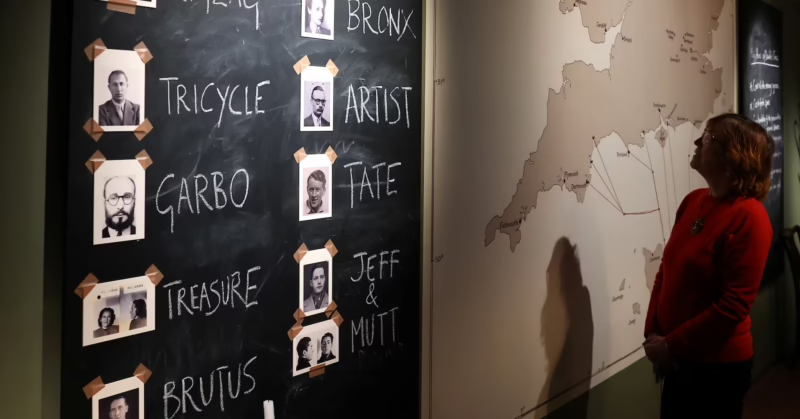
British spy agency MI5 lifts the curtain on its shadowy past, revealing gadgets, double agents, and Cold War betrayals in a rare public display.
Real Spies, Real Secrets: MI5’s Exhibition Reveals the Truth Behind Britain’s Espionage Legends
Move over, James Bond—the real spies of British intelligence have entered the room. For the first time in its 115-year history, MI5 is peeling back the layers of secrecy with a public exhibition that dives deep into its murky archives and infamous operations.
Titled “MI5: Official Secrets”, the new exhibition at The National Archives in London offers a rare glimpse into the real-world tradecraft of British intelligence. From lemon juice invisible ink to surveillance files on Soviet moles, the exhibit pulls no punches in showing how Britain’s security service battled foreign threats across two world wars and the Cold War.
One of the most jaw-dropping features? Newly released materials on the Cambridge Five—a ring of elite British insiders who betrayed their country by feeding secrets to Moscow. Their names—Kim Philby, Guy Burgess, Donald Maclean, Anthony Blunt, and John Cairncross—still send shivers through British intelligence circles, and their confessions, reports, and surveillance records are now on public display.
Ken McCallum, MI5’s director general, stressed that unlike the glamorous espionage of Bond or the grit of Slow Horses, real spy work is “ordinary people doing extraordinary things” in silence. Still, the lemon juice used by a German spy to write invisible messages during WWI? That feels very 007.
The exhibition runs through September and is designed to both educate and provoke reflection. In a world once split by East and West—and now again fractured by new threats—MI5’s unveiling of its past is not just history. It’s a subtle message: the spy game is far from over.
Somalia
Video: Mogadishu Airport Shuts Down After UN Plane Crash — Flights Suspended

Somali Civil Aviation Authority suspends all Mogadishu-bound flights after UN plane crash at Aden Adde Airport; runway closed, global notification issued.
A UN aircraft crash at Mogadishu’s Aden Adde Airport has forced the Somali Civil Aviation Authority to suspend flights and shut down the runway. Emergency response underway as 22 UN staff escape disaster.
The Somali Civil Aviation Authority has officially suspended all incoming flights to Mogadishu after a United Nations plane carrying 22 passengers crash-landed at Aden Adde International Airport earlier today.
Director Ahmed Macalin Hassan confirmed that the UN aircraft, bound for Baidoa, suffered a catastrophic technical failure shortly after takeoff and was forced to return to the airport. In a high-stakes emergency procedure, the plane released its fuel into the sea to minimize the risk of explosion and managed a harrowing landing—one that sparked a small fire and resulted in the total closure of the capital’s only functioning international runway.
The immediate fallout? A shutdown that reverberated far beyond Somalia’s borders. A notice was sent to 193 countries alerting them of the airport’s closure. Flights en route were diverted or grounded, and the country’s fragile air transport network—already under strain—was brought to a standstill.

As of 5:00 p.m., the runway remains blocked by the damaged aircraft, and emergency crews are scrambling to remove the wreckage. While no fatalities have been reported, the incident has reignited concerns about Somalia’s overstretched and under-resourced aviation infrastructure.
This is more than a temporary closure. It’s a wake-up call. The crash, involving international personnel and requiring global notification, casts a spotlight on the dangerous vulnerabilities facing Somalia’s aviation sector. Aden Adde Airport is not just a gateway—it’s a geopolitical lifeline used by diplomats, aid workers, and military partners. Its temporary paralysis sends shockwaves through humanitarian operations and diplomatic engagements across the Horn of Africa.
The question now is whether this near-catastrophe will lead to serious reforms—or whether Somalia’s aviation system will continue flying on fumes.

-

 Analysis4 weeks ago
Analysis4 weeks agoSaudi Arabia’s Billion-Dollar Bid for Eritrea’s Assab Port
-

 ASSESSMENTS4 days ago
ASSESSMENTS4 days agoOperation Geel Exposes the Truth: International Community’s Reluctance to Embrace Somaliland as a Strategic Ally
-

 Somaliland2 months ago
Somaliland2 months agoSomaliland and UAE Elevate Ties to Comprehensive Strategic Partnership
-

 Africa12 months ago
Africa12 months agoHow Somaliland Could Lead the Global Camel Milk Industry
-

 Analysis12 months ago
Analysis12 months agoIran escalates conflict, attacking Israel; US forces help Israel to intercept Iranian projectiles
-
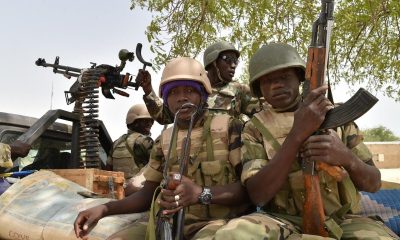
 Top stories10 months ago
Top stories10 months agoGunmen Kill 11 in Southeastern Nigeria Attack, Army Reports
-

 Analysis12 months ago
Analysis12 months agoIsrael and Iran on Edge: Tensions Escalate Amidst Rising Threats
-

 TECH10 months ago
TECH10 months agoZimbabwe Approves Licensing of Musk’s Starlink Internet Service




























